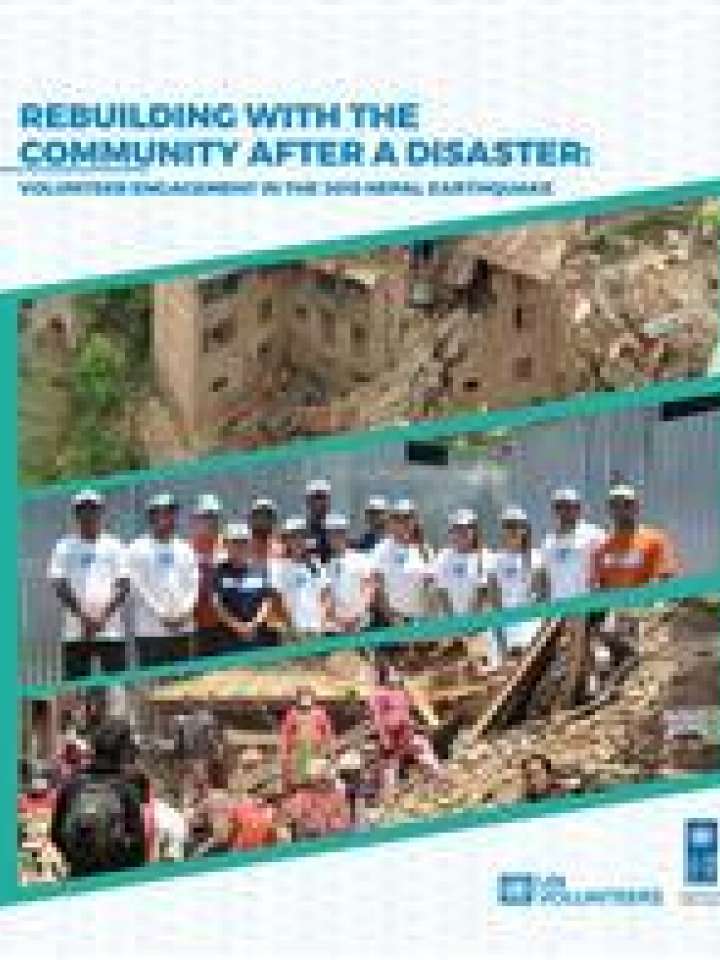Rebuilding with the community after a disaster: Volunteer engagement in the 2015 Nepal earthquake
This document presents the findings of a study on the role of volunteers in response, recovery and community rebuilding following the 2015 Nepal Earthquake. It found that volunteerism served to strengthen local institutions in the disaster-affected sites, mobilize and develop the capacities of distraught communities, and increase coordination efforts among key players that responded to the earthquake. Volunteers were also trained to "build back better" in the reconstruction of buildings to decrease vulnerability to future disasters.
Furthermore, the report shows that through the engagement of volunteers in response efforts at the community level, UN Volunteers was able to help advance the social inclusion of women, promote volunteerism among local people and decision-makers, and create opportunities for youth participation and capacity development.
In order to build resilience at the grassroots level, capacities inherent to the community must be developed and strengthened in disaster risk management programmes. Volunteerism is one such capacity of the community that can be of use in the pursuit of resilience and longer-term development objectives.
Explore further
